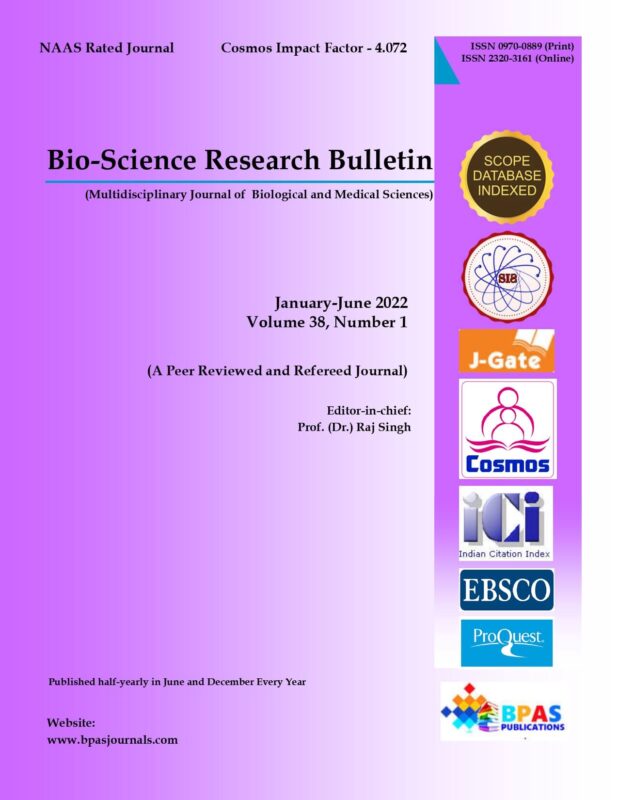Trends and Futuristic Applications of Big Data and Electronic Health Record Data in Empowering Constructive Clinical Decision Support Systems
9.38$
Krishna Jayanth Rolla*
Bio-Science Research Bulletin
Volume 39, Number 2
July-December 2023: P.78-91
Review Article
Categories: 39(2), JUL-DEC 2023, Bio-Science Research Bulletin
Description
Description
Krishna Jayanth Rolla*
Author’s Affiliation:
Department of Biotechnology, Sri Indu Engineering College, Hyderabad, Telangana 501510, India.
Current affiliation: Solutions Architect, GTSS, Hamilton, New Jersey, 08619 USA.
*Corresponding Author:
Krishna Jayanth Rolla, Department of Biotechnology, Sri Indu Engineering College, Telangana 501510, India.
E-mail: jayrolla09@gmail.com
Abstract
Modern healthcare benefits significantly from big data, electronic healthcare record data technologies, and artificial intelligence, which provide robust tools for the collection and analysis of vast and diverse datasets originating from various sources, such as clinical care, administration, and research. This advancement enables the creation of information technology infrastructures that facilitate the realization of the "Learning Healthcare System Cycle," wherein healthcare practice and research seamlessly intertwine in a synergistic manner. This review focuses on illustrating how the integration of extensive data collections, empowered by big data, can enhance clinical decision-making and advance biomedical research. Most importantly, electronic health records offer several benefits, including heightened accessibility to patient information, enhanced interdisciplinary communication, improved continuity of care, legible documentation, minimized duplication, and increased efficiency. The incorporation of computerized physician order entry within electronic medical records contributes to patient safety by mitigating medication errors and offering clinical guidance through prompts and alerts during electronic order entry. Furthermore, when evidence-based clinical decision support is integrated with electronic health records, it serves as a valuable tool for guiding healthcare providers and clinicians in aligning their clinical practices with meaningful use standards and compliance with quality metrics. This review also outlines the contemporary application of clinical decision support systems in the field of medicine. Its types, their existing practical applications with documented effectiveness, prevalent challenges, and potential adverse consequences. The review concludes by offering evidence-based guidelines aimed at mitigating risks associated with support systems design, implementation, evaluation, and ongoing maintenance.
KEYWORDS: Big data, Computerized Clinical Decision Systems, Electronic Health Record Data, Artificial Intelligence, Medicine.


